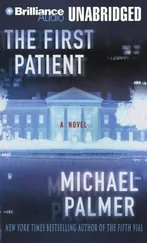Michael Ondaatje - The English Patient
Здесь есть возможность читать онлайн «Michael Ondaatje - The English Patient» весь текст электронной книги совершенно бесплатно (целиком полную версию без сокращений). В некоторых случаях можно слушать аудио, скачать через торрент в формате fb2 и присутствует краткое содержание. Жанр: Старинная литература, на русском языке. Описание произведения, (предисловие) а так же отзывы посетителей доступны на портале библиотеки ЛибКат.
- Название:The English Patient
- Автор:
- Жанр:
- Год:неизвестен
- ISBN:нет данных
- Рейтинг книги:4 / 5. Голосов: 1
-
Избранное:Добавить в избранное
- Отзывы:
-
Ваша оценка:
- 80
- 1
- 2
- 3
- 4
- 5
The English Patient: краткое содержание, описание и аннотация
Предлагаем к чтению аннотацию, описание, краткое содержание или предисловие (зависит от того, что написал сам автор книги «The English Patient»). Если вы не нашли необходимую информацию о книге — напишите в комментариях, мы постараемся отыскать её.
The English Patient — читать онлайн бесплатно полную книгу (весь текст) целиком
Ниже представлен текст книги, разбитый по страницам. Система сохранения места последней прочитанной страницы, позволяет с удобством читать онлайн бесплатно книгу «The English Patient», без необходимости каждый раз заново искать на чём Вы остановились. Поставьте закладку, и сможете в любой момент перейти на страницу, на которой закончили чтение.
Интервал:
Закладка:
A city of twelve. Each in separate parts of the town. One at the generator, one at the reservoir, still diving—the authorities most certain destruction will be caused by flooding. How to mine a city. It is unnerving mostly because of the silence. All they hear of the human world are barking dogs and bird songs that come from apartment windows above the streets. When the time comes, he will go into one of the rooms with a bird. Some human thing in this vacuum. He passes the Museo Archeologico Nazionale, where the remnants of Pompeii and Herculaneum are housed. He has seen the ancient dog frozen in white ash.
The scarlet sapper light strapped to his left arm is turned on as he walks, the only source of light on the Strada Carbonara. He is exhausted from the night search, and now there seems little to do. Each of them has a radiophone, but it is to be used only for an emergency discovery. It is the terrible silence in the empty courtyards and the dry fountains that makes him most tired.
At one p.m. he traces his way towards the damaged Church of San Giovanni a Carbonara, where he knows there is a chapel of the Rosary. He had been walking through the church a few evenings earlier when lightning filled the darkness, and he had seen large human figures in the tableau. An angel and a woman in a bedroom. Darkness replaced the brief scene and he sat in a pew waiting, but there was to be no more revelation.
He enters that corner of the church now, with the terra-cotta figures painted the colour of white humans. The scene depicts a bedroom where a woman is in conversation with an angel. The woman’s curly brown hair reveals itself under the loose blue cape, the fingers of her left hand touching her breastbone. When he steps forward into the room he realizes everything is larger than life. His own head is no higher than the shoulder of the woman. The angel’s raised arm reaches fifteen feet in height. Still, for Kip, they are company. It is an inhabited room, and he walks within the discussion of these creatures that represent some fable about mankind and heaven.
He slips his satchel from his shoulder and faces the bed. He wants to lie on it, hesitating only because of the presence of the angel. He has already walked around the ethereal body and noticed the dusty light bulbs attached to its back beneath the dark coloured wings, and he knows in spite of his desire that he could not sleep easily in the presence of such a thing. There are three pairs of stage slippers, a set designer’s subtlety, peeking out from under the bed. It is about one-forty.
He spreads his cape on the floor, flattens the satchel into a pillow and lies down on the stone. Most of his childhood in Lahore he slept on a mat on the floor of his bedroom. And in truth he has never gotten accustomed to the beds of the West. A pallet and an air pillow are all he uses in his tent, whereas in England when staying with Lord Suffolk he sank claustrophobically into the dough of a mattress, and lay there captive and awake until he crawled out to sleep on the carpet.
He stretches out beside the bed. The shoes too, he notices, are larger than life. The feet of Amazonians slip into them. Above his head the tentative right arm of the woman. Beyond his feet the angel. Soon one of the sappers will turn on the city’s electricity, and if he is going to explode he will do so in the company of these two. They will die or be secure. There is nothing more he can do, anyway. He has been up all night on a final search for caches of dynamite and time cartridges. Walls will crumble around him or he will walk through a city of light. At least he has found these parental figures. He can relax in the midst of this mime of conversation.
He has his hands under his head, interpreting a new toughness in the face of the angel he didn’t notice before. The white flower it holds has fooled him. The angel too is a warrior. In the midst of this series of thoughts his eyes close and he gives in to tiredness.
He is sprawled out with a smile on his face, as if relieved finally to be sleeping, the luxuriousness of such a thing. The palm of his left hand facedown on the concrete. The colour of his turban echoes that of the lace collar at the neck of Mary.
At her feet the small Indian sapper, in uniform, beside the six slippers. There seems to be no time here. Each of them has selected the most comfortable of positions to forget time. So we will be remembered by others. In such smiling comfort when we trust our surroundings. The tableau now, with Kip at the feet of the two figures, suggests a debate over his fate. The raised terra-cotta arm a stay of execution, a promise of some great future for this sleeper, childlike, foreign-born. The three of them almost at the point of decision, agreement.
Under the thin layer of dust the angel’s face has a powerful joy. Attached to its back are the six light bulbs, two of which are defunct. But in spite of that the wonder of electricity suddenly lights its wings from underneath, so that their blood-red and blue and goldness the colour of mustard fields shine animated in the late afternoon.
Wherever Hana is now, in the future, she is aware of the line of movement Kip’s body followed out of her life. Her mind repeats it. The path he slammed through among them. When he turned into a stone of silence in their midst. She recalls everything of that August day—what the sky was like, the objects on the table in front of her going dark under the thunder.
She sees him in the field, his hands clasped over his head, then realizes this is a gesture not of pain but of his need to hold the earphones tight against his brain. He is a hundred yards away from her in the lower field when she hears a scream emerge from his body which had never raised its voice among them. He sinks to his knees, as if unbuckled. Stays like that and then slowly gets up and moves in a diagonal towards his tent, enters it, and closes the flaps behind him. There is the dry crackle of thunder and she sees her arms darken.
Kip emerges from the tent with the rifle. He comes into the Villa San Girolamo and sweeps past her, moving like a steel ball in an arcade game, through the doorway and up the stairs three steps at a time, his breath metronomed, the hit of his boots against the vertical sections of stairs. She hears his feet along the hallway as she continues to sit at the table in the kitchen, the book in front of her, the pencil, these objects frozen and shadowed in the pre-storm light.
He enters the bedroom. He stands at the foot of the bed where the English patient lies.
Hello, sapper.
The rifle stock is against his chest, its sling braced against his triangled arm.
What was going on outside?
Kip looks condemned, separate from the world, his brown face weeping. The body turns and fires into the old fountain, and the plaster explodes dust onto the bed. He pivots back so the rifle points at the Englishman. He begins to shudder, and then everything in him tries to control that.
Put down the gun, Kip.
He slams his back against the wall and stops his shaking. Plaster dust in the air around them.
I sat at the foot of this bed and listened to you, Uncle. These last months. When I was a kid I did that, the same thing. I believed I could fill myself up with what older people taught me. I believed I could carry that knowledge, slowly altering it, but in any case passing it beyond me to another.
I grew up with traditions from my country, but later, more often, from your country. Your fragile white island that with customs and manners and books and prefects and reason somehow converted the rest of the world. You stood for precise behaviour. I knew if I lifted a teacup with the wrong finger I’d be banished. If I tied the wrong kind of knot in a tie I was out. Was it just ships that gave you such power? Was it, as my brother said, because you had the histories and printing presses?
Читать дальшеИнтервал:
Закладка:
Похожие книги на «The English Patient»
Представляем Вашему вниманию похожие книги на «The English Patient» списком для выбора. Мы отобрали схожую по названию и смыслу литературу в надежде предоставить читателям больше вариантов отыскать новые, интересные, ещё непрочитанные произведения.
Обсуждение, отзывы о книге «The English Patient» и просто собственные мнения читателей. Оставьте ваши комментарии, напишите, что Вы думаете о произведении, его смысле или главных героях. Укажите что конкретно понравилось, а что нет, и почему Вы так считаете.












